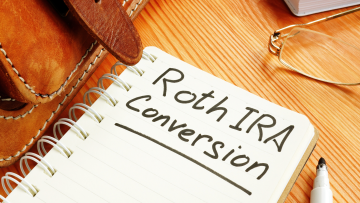For individuals who have built substantial wealth over the years, retirement planning goes beyond simply maintaining their lifestyle—it’s about preserving and growing their hard-earned assets to help support them in their golden years.
At CKS Summit Group, we assist those approaching retirement in refining their financial strategies for greater security and long-term success. But beyond financial planning, there are key habits that wealthy retirees adopt to help enhance their retirement experience.
Here are 10 habits wealthy retirees share and how to apply them to make the most of your retirement years.
1. They Prioritize Financial Education and Planning
Wealthy retirees don’t leave their financial future to chance. They educate themselves about various financial concepts, such as tax planning, estate planning, and retirement strategies. Whether through seminars, books, or consulting with financial professionals, they stay informed and engaged with their financial situation.
By doing so, they anticipate potential challenges, make informed decisions, and adjust their strategies based on market changes or personal circumstances. This proactive approach to planning sets them apart and enables them to achieve their retirement goals.
Tip: Continuously seek out resources that can help you understand important aspects of retirement, such as tax implications, healthcare costs, and estate planning. Work with a financial professional who can help you tailor a plan based on your unique needs. You can also try out free online resources like our Retirement Planning Calculators to get started here.
2. They Plan for Healthcare Costs Early
Healthcare costs are one of the biggest challenges retirees face. According to a recent study, the average 65-year-old couple retiring this year will need approximately $330,000 to cover healthcare expenses throughout their retirement. Wealthy retirees understand this and plan for healthcare costs early, helping ensure they have the right insurance coverage, including long-term care insurance and Medicare supplements.
They also monitor changes in healthcare laws and policies to ensure their plans stay current and comprehensive.
Tip: Take the time to explore healthcare options in retirement, and consider consulting with professionals who can help you structure your healthcare plan based on your anticipated needs and the coverage available.
3. They Understand the Importance of Diversification
While wealthy retirees understand the importance of risk management, they also know that investment diversification is key to long-term growth. They balance their portfolios across different asset classes—such as stocks, bonds, and real estate—to help reduce the risk of any single investment affecting their financial health.
Retirees also maintain a diversified income strategy, including rental income, dividends, and business income. This strategy helps them withstand market fluctuations and enjoy steady revenue throughout retirement.
Tip: Regularly review your investments and consider diversifying your portfolio to include a range of assets that align with your risk tolerance and long-term financial goals.
4. They Prioritize Estate Planning
Wealthy retirees know the importance of creating and maintaining an estate plan to help ensure that their wealth is passed on smoothly to their heirs. This includes having a well-thought-out will, establishing trusts, and making plans to help minimize estate taxes. Without a solid estate plan, assets can be tied up in lengthy probate processes, resulting in delays or even disputes among family members.
By prioritizing estate planning, wealthy retirees can help ensure their loved ones are provided for according to their wishes and that their legacy is preserved.
Tip: If you haven’t already, consider working with an estate planning attorney or financial advisor to create or update your will and establish trusts that align with your retirement and legacy goals.
5. They Maintain a Budget and Keep Track of Expenses
Even in retirement, wealthy retirees continue to monitor their spending. While they may have more freedom than others, they know that financial independence doesn’t mean financial neglect. By maintaining a budget and tracking their expenses, retirees can help ensure their lifestyle remains sustainable and avoid unexpected financial stressors.
Tracking their spending helps them identify areas where they can cut back, allowing them to allocate more money to their retirement savings or charitable contributions.
Tip: Use budgeting apps or software to help you track and manage your expenses, helping ensure that you stay within your desired retirement income limits.
6. They Use Tax-Efficient Withdrawal Strategies
Wealthy retirees know that taxes can eat into their retirement income, so they develop tax-efficient withdrawal strategies. They’re careful about which accounts they draw from first, helping ensure that they’re minimizing taxes and extending the longevity of their retirement funds.
For example, they may choose to withdraw funds from tax-deferred accounts like IRAs or 401(k)s in a way that keeps them in a lower tax bracket. Similarly, they may convert some of their traditional retirement savings into Roth IRAs, potentially growing tax-free and providing tax-free withdrawals in retirement.
Tip: Explore tax-efficient strategies, such as Roth IRA conversions or systematic withdrawals, with the help of a professional who can help assess the best approach for your financial situation. Speak with your financial advisor about exploring portfolios that target the lowest tax rate you can legally achieve during retirement–like our SMART Retirement Portfolio– here.
7. They Have a Strong Support System
Wealthy retirees understand that a strong support system is vital to maintaining both financial and personal well-being. This support system can include family, friends, trusted advisors, and even community groups. Having a network of people to lean on can make all the difference when navigating the challenges of retirement.
Retirees who maintain a solid support system are more likely to make better decisions and be motivated to stay active and engaged.
Tip: Stay connected with family and friends, and build a network of trusted professionals who can guide you as you transition into retirement. Having the right support can help you stay focused on what matters most.
8. They Continuously Adjust Their Lifestyle Goals
Your life in your 60s may look quite different from those in your 70s or 80s. Wealthy retirees understand this and are flexible in adjusting their goals and priorities as they age. For example, they might shift from traveling the world to focusing on spending more time with family or pursuing new hobbies.
Adjusting their lifestyle goals allows them to make the most of their retirement years and focus on what matters most to them. It also helps them manage their finances more effectively as their priorities evolve.
Tip: Regularly reassess your lifestyle and retirement goals. Reevaluate your time commitments and financial strategies to ensure your plans reflect your current values and desires.
9. They Are Philanthropic and Give Back
Wealthy retirees often prioritize philanthropy, giving back to their communities, or supporting causes they care deeply about. This may involve donating to charity, volunteering their time, or establishing a charitable foundation. Many retirees find that giving back enhances their sense of purpose and fulfillment, creating a legacy of positive impact.
Philanthropy can also offer potential tax benefits, further supporting their financial goals.
Tip: If you’re interested in incorporating charitable giving into your retirement plans, consider strategies such as donor-advised funds or charitable remainder trusts, which can provide tax benefits while allowing you to support causes that matter to you.
10. They Invest in Their Health and Well-being
A key to enjoying a wealthy and fulfilling retirement is maintaining good health. Wealthy retirees prioritize their physical, mental, and emotional well-being by maintaining a balanced lifestyle. They make time for regular exercise, eat a nutritious diet, and stay mentally active. They also make sure to stay connected to healthcare professionals to monitor their health and prevent future issues.
By investing in their health, they help ensure they have the energy and vitality needed to enjoy their retirement years to the fullest.
Tip: Prioritize health by creating a fitness routine, eating well, and scheduling regular checkups to maintain your physical and mental health.
Additional Strategies for Successful Retirement Planning
While adopting these habits can set you on the path to a secure retirement, there are several other factors to consider when planning for your financial future.
1. Understand Your Retirement Income Needs: Before you retire, it’s crucial to have a clear understanding of how much income you will need to maintain your lifestyle. Wealthy retirees tend to calculate their anticipated expenses, factoring in inflation and lifestyle changes. This allows them to determine how much they need to withdraw from their investment accounts to cover costs.
2. Take Advantage of Tax-Deferred Growth: One way to help maximize your retirement savings is to use tax-advantaged accounts like 401(k)s and IRAs. These accounts allow your money to grow without being taxed until you begin making withdrawals. For high-net-worth individuals, contributing to these accounts and strategically managing withdrawals may help lead to significant tax savings.
3. Review Your Investment Strategy: It is important to review your asset allocation and risk tolerance as you reach retirement age. Wealthy retirees tend to reallocate their portfolios to balance growth with income generation, helping ensure their money works for them even after they stop working.
4. Consider Longevity Planning: Retirement planning is not just about managing your finances; it’s about helping ensure your assets last as long as you do. A good retirement plan should include provisions for long-term care, health expenses, and any additional needs that arise as you age.
Final Thoughts
While wealth is undoubtedly important in securing a comfortable retirement, the habits accompanying it can have an even greater impact on ensuring long-term success. By following these 10 habits, wealthy retirees can enjoy a retirement that maintains their lifestyle and provides the freedom and flexibility to thrive.
At CKS Summit Group, we’re experienced in helping high-net-worth individuals navigate the complexities of retirement planning. If you are approaching retirement and want to learn more about how you can help enhance your financial strategy, contact us today to set up a consultation.
Retirement Planning FAQs
1. How much money do I need to retire?
Determining how much you need for retirement depends on various factors, including your lifestyle, anticipated healthcare costs, and the age at which you plan to retire. A common rule of thumb is that you may need 70-80% of your pre-retirement income annually. However, personal circumstances, such as planned travel, hobbies, or living expenses, can influence this figure.
2. What is the best age to start saving for retirement?
The earlier you start saving for retirement, the better. Ideally, you should begin saving as soon as you can. The power of compound interest makes starting early crucial, as the longer your investments have to grow, the more potential they have. If you’re closer to retirement age and haven’t started saving, starting as soon as possible is important to help maximize what you can put away.
3. How should I invest my retirement savings?
Your investment strategy will depend on your retirement goals, risk tolerance, and time horizon. Generally, younger individuals may lean toward riskier, growth-oriented investments like stocks, while those closer to retirement might shift toward safer, income-generating investments like bonds or annuities. Diversification is key to helping manage risk and maximizing returns.
4. What happens to my retirement savings if I change jobs?
If you change jobs, you generally have several options for your retirement savings. You can leave your 401(k) with your former employer, roll it over into your new employer’s 401(k) plan, or transfer it into an individual retirement account (IRA). Each option has different implications for fees, investment choices, and tax consequences.
5. How can I help minimize taxes in retirement?
Tax planning is crucial in retirement to help ensure you’re not paying more than necessary. Contributing to tax-deferred retirement accounts (like 401(k)s and IRAs), converting to Roth IRAs, and strategically managing withdrawals can help minimize taxes. When planning your retirement income strategy, it’s important to consider both federal and state tax rates and your tax bracket.
Disclaimer: The information in this article is for educational purposes only and is not intended as financial advice. Please consult with a licensed financial advisor or tax professional before making any investment decisions. CKS Summit Group does not provide specific investment advice or financial advice.



